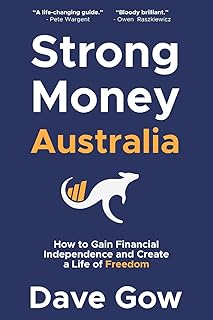The Albanese government has reached a significant milestone in the development of the Delivering Better Financial Outcomes legislation’s second tranche. This legislative phase involves the elimination of Statements of Advice (SOAs) and the introduction of various measures aimed at enhancing superannuation fund practices. Treasury has recently released the exposure draft for Tranche 2 of DBFO, outlining key reform aspects such as the removal of SOAs, the implementation of collective charging methods for intra-fund advice, and the promotion of nudges to guide super fund members.
While several contentious components like the proposal for a “new class of adviser” and the exclusion of Safe Harbour Steps from the Best Interests Duty have been deferred for separate consideration, the government has made significant progress in finalizing crucial elements of the legislation. Outgoing Minister for Financial Services, Stephen Jones, acknowledged the challenges faced in drafting the modified BID provisions during the recent Professional Planner Advice Policy Summit. The summit highlighted the industry’s concerns, with the scope of advice provided by the new class of adviser emerging as a particularly contentious issue.
The Super Members Council, representing profit-to-member and industry super funds, expressed strong support for the forthcoming DBFO Tranche 2 legislation, emphasizing the importance of scaled advice in the reform package. However, the anticipated release of the legislation was postponed due to the impending threat of Tropical Cyclone Alfred, which posed significant risks to communities in southeast Queensland and northern NSW. The government redirected its resources towards disaster preparedness and recovery efforts, leading to the delay in the legislation’s release.
The cyclone’s impact extended beyond legislative matters, affecting Prime Minister Anthony Albanese’s election plans and potentially influencing the timing of the federal budget. With the cyclone disrupting key political events, including the election announcement and budget planning, the government faced challenges in managing both the natural disaster response and its legislative agenda. Despite these hurdles, stakeholders in the financial advice sector remain optimistic about the progress made in refining the DBFO legislation, as evidenced by the consensus reached at the recent Advice Policy Summit.
During the summit, industry stakeholders, including advisers, licensees, and super funds, reaffirmed their commitment to the financial advice reform project. The collaborative efforts to address technical and legal drafting issues signaled a newfound alignment among various industry groups. However, some observers remain cautious, citing past drafting errors in the initial DBFO legislation. Michelle Levy, a partner at Allens who contributed to the Quality of Advice Review, expressed concerns about the modest nature of the government’s response and its potential implications for advice accessibility and affordability.
The ongoing evolution of financial advice regulations underscores the industry’s commitment to enhancing consumer protections and promoting quality advice standards. As policymakers navigate the complexities of financial advice reform, industry stakeholders continue to engage in constructive dialogue to address regulatory challenges and drive positive changes in the financial advice landscape.
📰 Related Articles
- Albanese Government Enacts Landmark Superannuation Objective Legislation
- Government Unveils Retirement Reform Plan for Enhanced Financial Security
- Enhancing Workplace Diversity Training for Better Organizational Outcomes
- Albanese Open to Coalition Collaboration on Superannuation Tax Legislation
- Yamaha’s V4 MotoGP Engine Progresses with New Rear Wing






